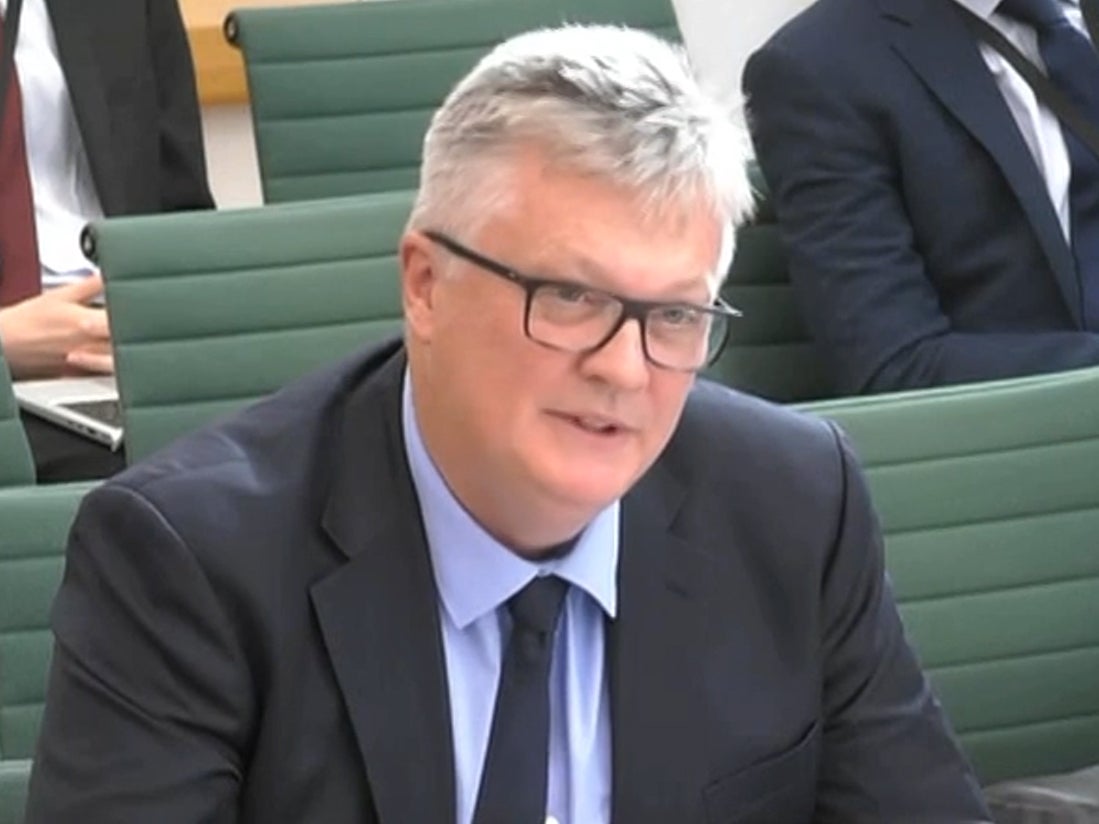Households should ‘accept’ being poorer, Bank of England’s top economist says
Huw Pill said workers asking for higher pay and shopkeepers putting up prices is ‘self-defeating’ as it fuels inflation

The Bank of England’s chief economist is facing backlash for suggesting households “need to accept” they will be poorer.
Huw Pill said workers asking for higher pay and shopkeepers putting up prices were “self-defeating” as both fuel inflation.
The former Goldman Sachs banker said Mr Pill said people in the UK were playing a “pass the parcel game” by asking for higher pay in a bid to maintain their spending power and had so far been “reluctant” to accept that their incomes had been hit.
He urged people to “stop trying” to keep up with the spiralling cost of living and “accept they are worse off”.
But Labour MP Richard Burgon told The Independent that families “should not just have to accept getting poorer” and said Mr Pill’s comments would “stick in people’s throats”.
And the left-wing think tank the New Economics Foundation said Mr Pill’s comments reflected the Bank’s “failed inflation strategy”. Its researcher Dominic Caddick said large firms “profiteering” were to blame for high inflation, not workers.
Mr Pill’s comments echoed a call from the Bank’s governor Andrew Bailey last year for workers to not ask for their pay to keep up with inflation. At the time Mr Bailey, who earns £570,000 a year, was criticised for urging workers to “show restraint”, with the GMB union branding his suggestion a “sick joke”.
Speaking to a podcast by Columbia Law School, Beyond Unprecedented: The Post-Pandemic Economy, on Tuesday, Mr Pill said: “When your energy bill [that] you get every month at your house goes up four or five times, that’s eating into your income. What’s the natural thing to do? Well, the natural thing to do is say, I need to be paid more.
“But then, of course, that process is ultimately self-defeating.”
Using gas prices as an example, Mr Pill said that while the gas Britain buys from around the world has become significantly more expensive since Russia’s invasion of Ukraine, what the country sells has not.
“You don’t need to be much of an economist to realise if what you’re buying has gone up a lot relative to what you’re selling, you’re going to be worse off,” Mr Pill added.
He said: “So somehow, in the UK, someone needs to accept that they’re worse off and stop trying to maintain their real spending power.
“What we’re facing now is that reluctance to accept that, yes, we’re all worse off, and we all have to take our share.”
Reacting to his comments, Mr Burgon told The Independent: “Our constituents shouldn’t have to just accept getting poorer and poorer and very rich people telling them to do so will really stick in people’s throats.
“Corporate profits are up, billionaires have never had it so good and top bosses are raking in more than ever. It’s about time they were told to tighten their belts rather than ordinary people being told to just suck up the biggest fall in living standards since records began.”
Mr Caddick told The Independent: “Huw Pill’s insistence on workers accepting they are poorer while supermarkets and energy giants get richer is a direct reflection of the Bank of England’s failed inflation strategy.
“Global supply shocks have led to higher prices of raw goods and these prices have been passed on and reinforced by profiteering firms. The accusation that workers seeking a better standard of living are to blame doesn’t fit with the fact that private sector wages have been falling.
“If anyone is to blame for high inflation it is large firms profiting from the cost of living crisis, not people just trying to get by."
Inflation rose unexpectedly in February, hitting 10.4 per cent with food and drink prices again driving the rise, the Office for National Statistics said.
The latest Consumer Price Index rate was up from 10.1 per cent in January, reversing the downward trend of recent months. Most economists were expecting that to fall to 9.9 per cent in February.





Join our commenting forum
Join thought-provoking conversations, follow other Independent readers and see their replies
Comments